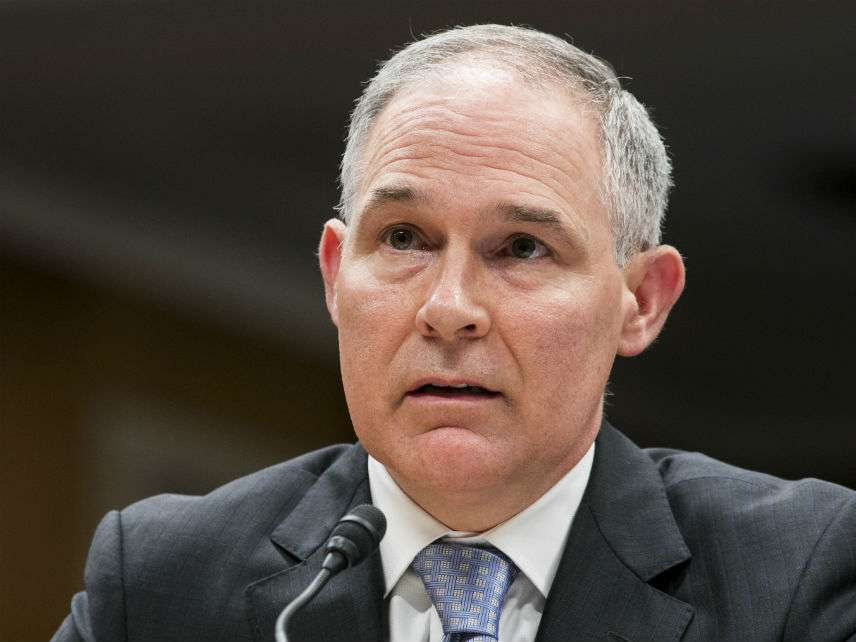Scott Pruitt Kicks Himself in His Own Ass, Again
EPA head bars reporters from 'unfriendly' media from public meeting on pollution

Environmental Protection Agency administrator Scott Pruitt evidently arranged to have journalists from media outlets he perceives to be unfriendly excluded from covering a National Leadership Summit that he convened today with the purported goal of taking action on Per- and Polyfluoroalkyl Substances (PFAS) that are contaminating drinking water around the nation. Reporters from AP, CNN, and E&E News were banned from the Summit, and the reporter with the AP was forcibly ejected from the EPA's headquarters.
The Summit is being held on the heels of the revelation in Politico that the EPA is apparently suppressing a new report on the safety of PFAS from the Agency for Toxic Substances and Disease Registry. That report suggested that the EPA's safe level of exposure at 70 parts per trillion is about six times too high. Most of the concerns about exposure to PFAS are based on a large number of epidemiological studies that detect fairly subtle health effects. Subtle, however, does not mean no effects.
Naturally, the fact that the PFAS report is being withheld attracted the attention of reporters. Pruitt and his public relations crew initially claimed that there was simply no space in the meeting room. According to reporters who were allowed to cover the conference this was false; there were several empty seats in the area assigned to journalists. In fact, the journalists who were permitted to attend were initially limited to one hour—basically just enough time to hear Pruitt's canned remarks at the opening of the conference.
Apparently embarrassed by the backlash from this surpassingly clumsy attempt to protect the EPA's boss from uncomfortable questions, reporters will now be allowed to cover the rest of the two-day meeting. Setting reasonable limits on the number of press at public events is OK, say, by letting reporters in on a first-come basis. But excluding them because federal public servants don't like their reporting is wrong and, as EPA public relations minions have just learned, it will backfire. As a result of this self-inflicted wound, much more media and public attention (including me) will be turned toward how the EPA will handle the regulation of PFAS from now on.
